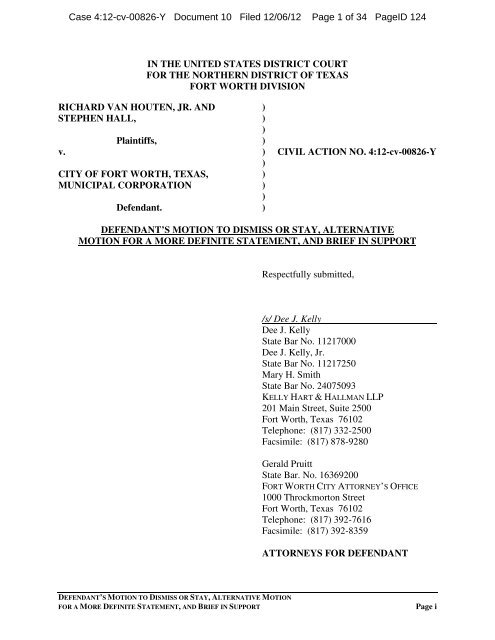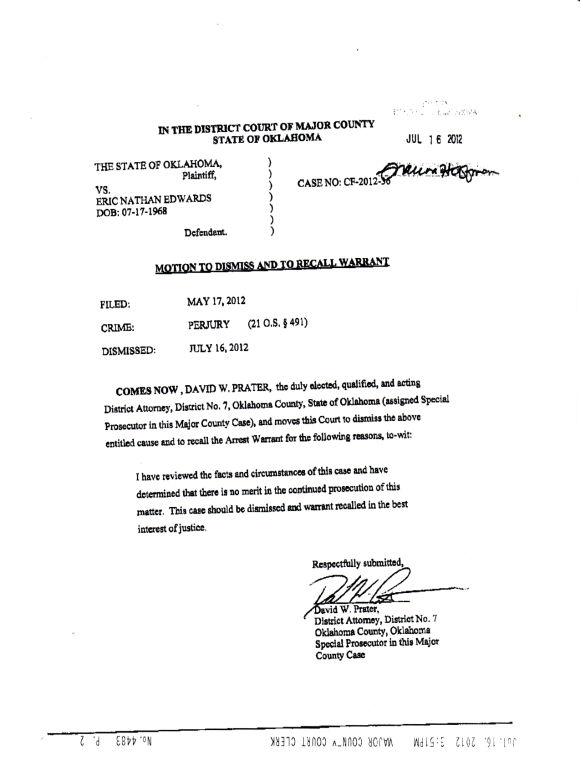

218, §19 (District Court and Boston Municipal Court). This defense permits a defendant to raise by motion to dismiss the issue whether the amount of damages that the plaintiff is reasonably likely to recover meets the requirements of G. (2008) Rule 12(b) has been amended to add a new numbered defense, 12(b)(10). A motion, answer, or reply presenting the defense numbered (6) shall include a short, concise statement of the grounds on which such defense is based. If, on any motion asserting the defense numbered (6), to dismiss for failure of the pleading to state a claim upon which relief can be granted, matters outside the pleading are presented to and not excluded by the court, the motion shall be treated as one for summary judgment and disposed of as provided in Rule 56, and all parties shall be given reasonable opportunity to present all material made pertinent to such a motion by Rule 56.
#Response to motion to dismiss for failure to state a claim trial#
If a pleading sets forth a claim for relief to which the adverse party is not required to serve a responsive pleading, he may assert at the trial any defense in law or fact to that claim for relief. No defense or objection is waived by being joined with one or more other defenses or objections in a responsive pleading or motion. 218, §19.Ī motion making any of these defenses shall be made before pleading if a further pleading is permitted. 212, §3 or in the District Court as set forth in G. (10) Improper amount of damages in the Superior Court as set forth in G. (9) Pendency of a prior action in a court of the Commonwealth (7) Failure to join a party under Rule 19 (6) Failure to state a claim upon which relief can be granted. (2) Lack of jurisdiction over the person (1) Lack of jurisdiction over the subject matter

Rule 80: Stenographic report or transcript.Rule 79: Books and records kept by the clerk and entries therein.Rule 71: Process in behalf of and against persons not parties.Rule 70: Judgment for specific acts: Vesting title.Rule 65.3: Proceedings for civil contempt.Rule 65.2: Redelivery of goods or chattels.Rule 65.1: Security: Proceedings against security provider.Provisional and final remedies and special procedures Rule 62: Stay of proceedings to enforce a judgment.Rule 59: New trials: Amendment of judgments.Rule 55.1: Special requirements for defaults and default judgments for certain consumer debts.Rule 51: Argument: Instructions to jury.Rule 50: Motion for a directed verdict and for judgment notwithstanding the verdict.Rule 49: Special verdicts and interrogatories.Rule 48: Number of jurors - Majority verdict.Rule 44.1: Determination of foreign law.Rule 42: Consolidation: Separate trials.Rule 40: Assignment of cases for trial: Continuances.

Rule 37: Failure to make discovery: Sanctions.Rule 35: Physical and mental examination of persons.Rule 34: Producing documents, electronically stored information, and tangible things, or entering onto land, for inspection and other purposes.Rule 32: Use of depositions in court proceedings.Rule 31: Depositions of witnesses upon written questions.Rule 30: Depositions upon oral examination.Rule 29: Stipulations regarding discovery procedure.Rule 28: Persons before whom depositions may be taken.Rule 27: Depositions before action or pending appeal.Rule 26: General provisions governing discovery.Rule 23.2: Actions relating to unincorporated associations.Rule 23.1: Derivative actions by shareholders.Rule 21: Misjoinder and non-joinder of parties.Rule 19: Joinder of persons needed for just adjudication.Rule 18: Joinder of claims and remedies.Rule 17: Parties plaintiff and defendant: Capacity.Rule 16: Pre-trial procedure: Formulating issues.Rule 15: Amended and supplemental pleadings.Rule 8.1: Special requirements for certain consumer debts.Rule 7: Pleadings allowed: Form of motions.Rule 5: Service and filing of pleadings and other papers.Rule 4.3: Arrest: Supplementary process: Ne exeat.Commencement of action service of process, pleadings, motions and orders For the law library, Massachusetts Rules of Civil Procedure


 0 kommentar(er)
0 kommentar(er)
